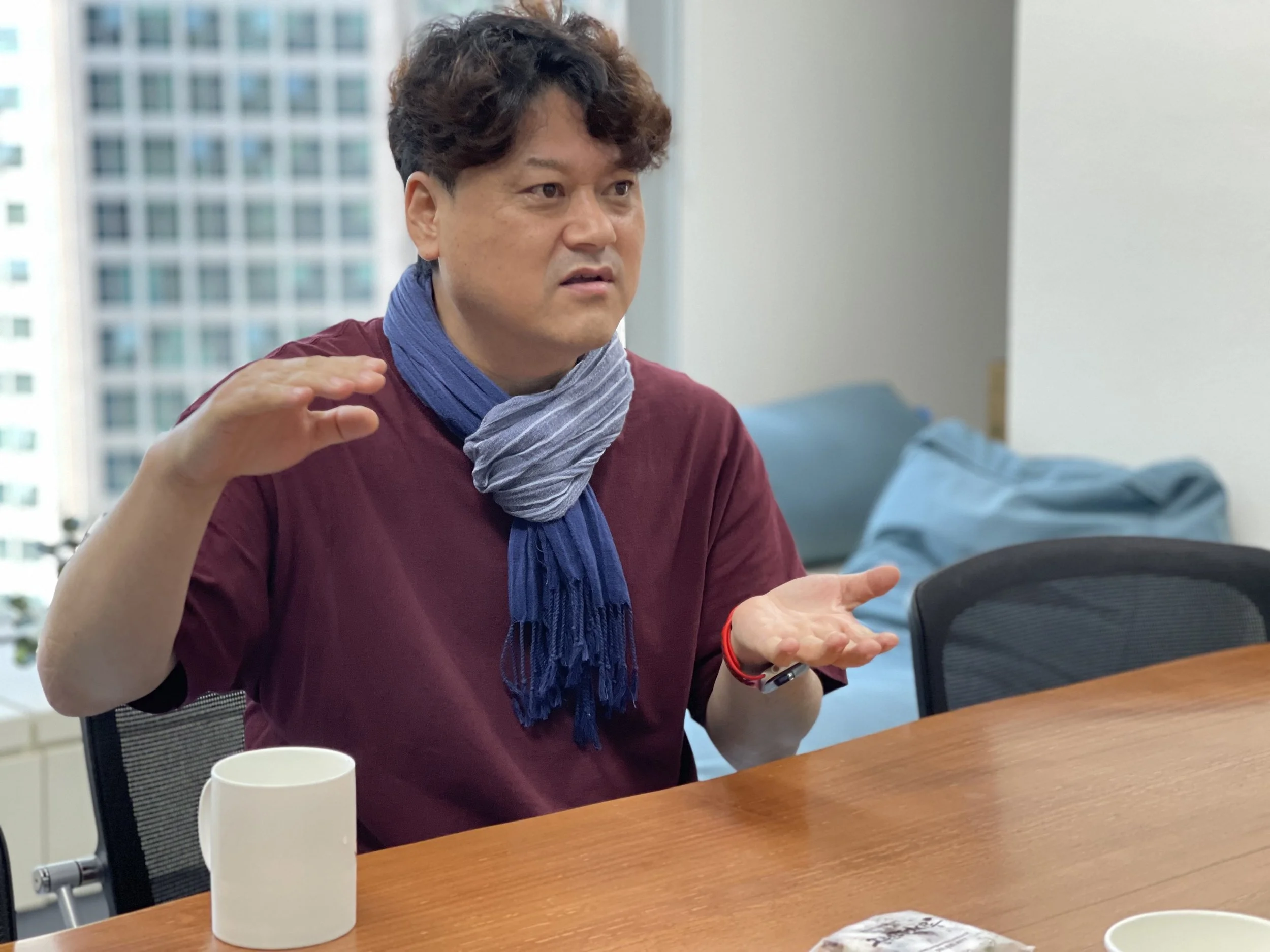The Korean Animation Industry's Path Forward
By Chris Weatherspoon
Daehyun JEON, General Manager of the Creative Industries Division at the Seoul Business Agency (SBA)
In Part 1 of our interview with Daehyun Jeon, General Manager of the Creative Industries Division at the Seoul Business Agency (SBA), we explored the agency's role in supporting Seoul's content creation industry. While the Korean Wave has achieved remarkable global success, Mr. Jeon engaged in an open and honest discussion about the unique challenges faced by the animation industry.
The Stagnation of Growth & Investment Hurdles
Despite substantial government funding, the Korean animation industry has experienced a decade of stagnation in terms of workforce size, industry growth, and revenue. As Mr. Jeon points out, "Looking at the white paper over the past 10 years, the number of workers in the industry, the growth of the industry itself - which would be reflected in sales figures - all of these have stagnated." This stagnation, he believes, is linked to the challenges of securing investment. "From an investor's point of view, there has been no return on investment in the last 10 years," he observes. This reluctance stems partly from the industry's historical focus on short-term projects and a perceived lack of scalability compared to other creative industries like gaming.
Structural Challenges and the Talent Drain
Mr. Jeon highlights a structural issue within the Korean animation industry that further complicates both investment and growth: the lack of specialization. "In Korea, the studio head, the CEO, does marketing, directing, and everything," he observes. "Because of that... at some point, you can't grow." Unlike the US model, where animation studios concentrate solely on production while other entities handle marketing and investment, Korean studios often operate with a more centralized structure, placing a heavy burden on studio heads. This can lead to creative bottlenecks and hinder the industry's ability to scale.
This lack of specialization, coupled with relatively low wages for animators, has contributed to a "brain drain" of talent to other sectors like gaming and the metaverse. As Mr. Jeon explains, "People might say that the animation workforce has shifted to the gaming industry because it's doing well, or to the metaverse because it's the metaverse. However, if the animation industry had grown and offered a proper salary system, people wouldn't have left." He further notes the irony of animators working in other fields despite their passion for animation: "There are animators who moved to the gaming industry. But what they truly want to do is animation. They're working in game companies for the money, but they yearn to return to animation."
These structural and financial challenges present a major hurdle for the Korean animation industry, impacting its growth potential and ability to attract and retain top talent.
Expanding Global Reach
Expanding into international markets remains a daunting challenge for Korean animation studios. Mr. Jeon observes that there is room for growth in developing a stronger international demand for Korean animation, stating frankly, "We haven't been able to find overseas buyers who are actively seeking Korean animation." He's critical of the traditional approach of simply "taking companies to the US or China," which often yields little interest from potential buyers. Instead, he advocates for a more strategic approach, emphasizing the need to promote the intellectual property (IP) itself and actively establish meaningful connections with buyers who have expressed genuine interest.
The industry's historical focus on content targeting young children has also limited its appeal to a broader global audience. "They're looking for content with a higher age rating, but we don't have much to offer," Mr. Jeon admits. This narrow focus not only restricts the industry's global reach but also impacts its revenue potential. As he explains, "The parenting market... has a much larger pie as the target age group increases, leading to higher purchasing power. But we're unable to tap into that market."
The SBA's Solutions
The SBA is working to address these challenges to build a stronger Korean animation industry and ensure its long-term success. One of their key initiatives is encouraging investment and growth by establishing an investment council, connecting content creators with potential investors and providing a platform for access to much-needed funding. Mr. Jeon proudly notes that they have successfully engaged around 23 out of the 35 venture capital firms in Korea that invest in cultural content. "We're not just trying to make Korean animation the next big thing," Mr. Jeon quips. "We're trying to make it the next profitable thing. After all, even passionate animators need to eat!"
Beyond financial support, the SBA is championing sustainable growth, advocating for fair compensation for animators and actively working to expand the market size. With an eye towards global expansion, the SBA is showcasing the unique qualities of Korean animation IP, actively seeking partnerships with foreign investors and distributors to bring Korean content to a wider audience. Their comprehensive database of Korean content creators looks to simplify international collaborations and open doors to new markets. Additionally, the SBA continues to nurture emerging talent through specialized academies and encourages cross-industry collaboration to ignite innovation and fresh business opportunities.
A Brighter Future for Korean Animation
The road ahead may not be without obstacles, but the SBA's proactive approach of addressing the industry's challenges head-on and strong belief in the potential of Korean content offer a promising outlook for the future.
As Mr. Jeon succinctly states, "We are working in two sectors: here, we focus on discovering original sources, while there, we focus on expanding and strengthening global outreach." This dual focus on developing domestic talent and establishing international connections will hopefully position the Korean animation industry for continued growth.
SBA (English) Website: https://sba.seoul.kr/En/index.aspx
Upcoming 2024 SBA Events
| Event Name | Date | Website |
|---|---|---|
| GES:GamEsportSeoul | 2024.09.06 - 2024.09.08 | https://ges.seoul.kr |
| Global Webtoon Festival | 2024.09.26 - 2024.09.29 | https://www.ani.seoul.kr/ |
| Seoul Promotion Plan (SPP) | 2024.10.23 - 2024.10.24 | https://www.spp.kr/ |
| SeoulCON | 2024.12.28 - 2025.01.01 | https://seoul-con.com/en |


